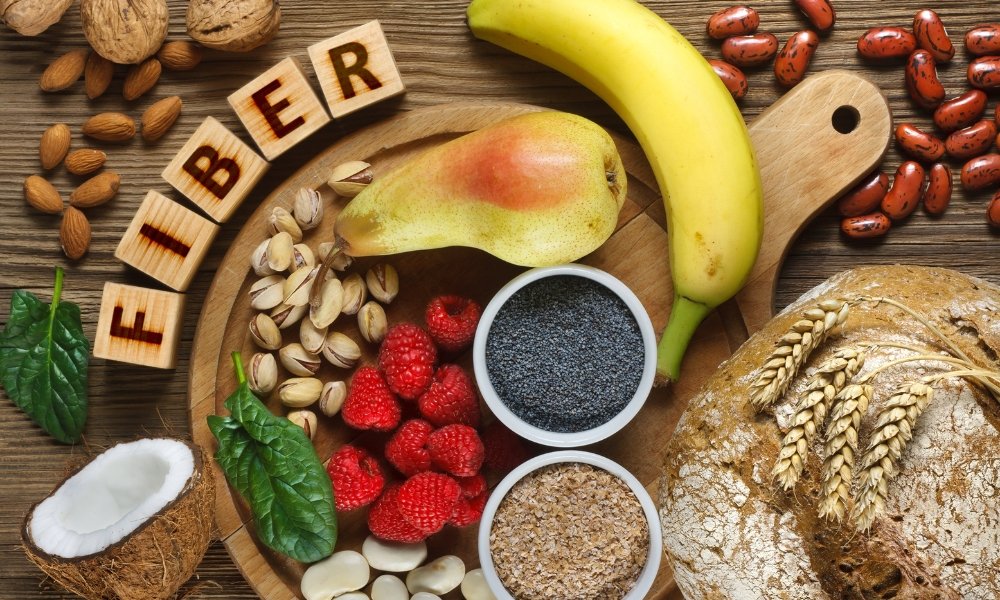If you’re experiencing constipation despite eating plenty of fiber, you’re not alone. Constipation can be frustrating, especially when you feel like you’re doing everything right. At United Gastroenterology Associates, PLLC, Dr. Muhammad Ali Khan and our team understand how challenging this can be, and we’re here to help you identify the underlying causes and find effective relief.
Make Sure You’re Staying Hydrated
Fiber works best when it has enough water to absorb, softening stools and supporting regularity. Without adequate hydration, fiber can actually make constipation worse, leading to bulkier stools that are harder to pass. Drinking enough water throughout the day can make a big difference in keeping digestion moving smoothly.
Check the Type of Fiber You’re Eating
Not all fiber is the same. Soluble fiber (found in foods like oats, beans, and fruits) helps add bulk to stools, while insoluble fiber (found in whole grains and vegetables) promotes movement through the digestive tract. Achieving a balance of both types is key—too much insoluble fiber without enough soluble fiber can sometimes worsen constipation. Our team can help guide you on how to incorporate a healthy mix of both into your diet.
Get Moving for Better Digestion
Physical activity plays an important role in stimulating the muscles in your digestive tract, encouraging food and waste to move through efficiently. If your lifestyle is mostly sedentary, digestion can slow down, making constipation more likely. Regular exercise, even simple activities like walking, can make a noticeable difference in your digestive health.
Don’t Stress
Dealing with constipation, especially when you’re putting effort into a high-fiber diet, can be frustrating. However, stress and anxiety can exacerbate symptoms, so try to stay calm. Knowing that our team at United Gastroenterology Associates is here to help can bring peace of mind as you work through this.
Check Your Medications
Certain medications, such as pain relievers, iron supplements, and antacids, can have constipation as a side effect. If you’re concerned that one of your medications may be affecting your digestion, consult with your doctor or one of our specialists. We can explore alternative options that might reduce this side effect.
Rule Out Digestive Health Conditions
Sometimes, constipation can be a sign of underlying health conditions, like irritable bowel syndrome (IBS) or hypothyroidism. Our specialists at United Gastroenterology Associates are trained to identify and manage these conditions to bring you relief. If constipation persists despite dietary adjustments, we may recommend a comprehensive evaluation to check for any underlying issues.
Practice Healthy Eating Habits
Eating habits can significantly impact digestion. Skipping meals, eating large portions infrequently, or not chewing food thoroughly can slow down your digestive process and lead to constipation. Try to eat smaller, more frequent meals and take the time to chew thoroughly to promote better digestion.
When to Seek Medical Attention
If constipation continues despite your efforts, it may be time to seek professional care. At United Gastroenterology Associates, we can conduct a thorough evaluation to understand the root cause of your constipation. We may recommend further tests, such as a colonoscopy, to rule out any serious conditions and ensure that you receive appropriate treatment.
Effective Treatment and Prevention Tips
Based on your diagnosis, we’ll create a tailored treatment plan to relieve constipation and help prevent it from returning. Options may include:
- Dietary Adjustments: Incorporating a balanced mix of soluble and insoluble fiber along with staying hydrated can support optimal digestive health.
- Fiber Supplements: Sometimes, a specific fiber supplement may help regulate digestion more effectively.
- Prescription Medications: If necessary, we can prescribe medications to manage constipation.
- Lifestyle Modifications: Regular physical activity, consistent meal timing, and relaxation practices are key to supporting digestive health.
Take Control of Your Digestive Health
Constipation doesn’t need to disrupt your quality of life. If you’re struggling with persistent constipation, contact United Gastroenterology Associates, PLLC to schedule a consultation at our Cypress or Katy locations. Our compassionate team is here to provide personalized solutions to keep you comfortable and support your digestive health.


